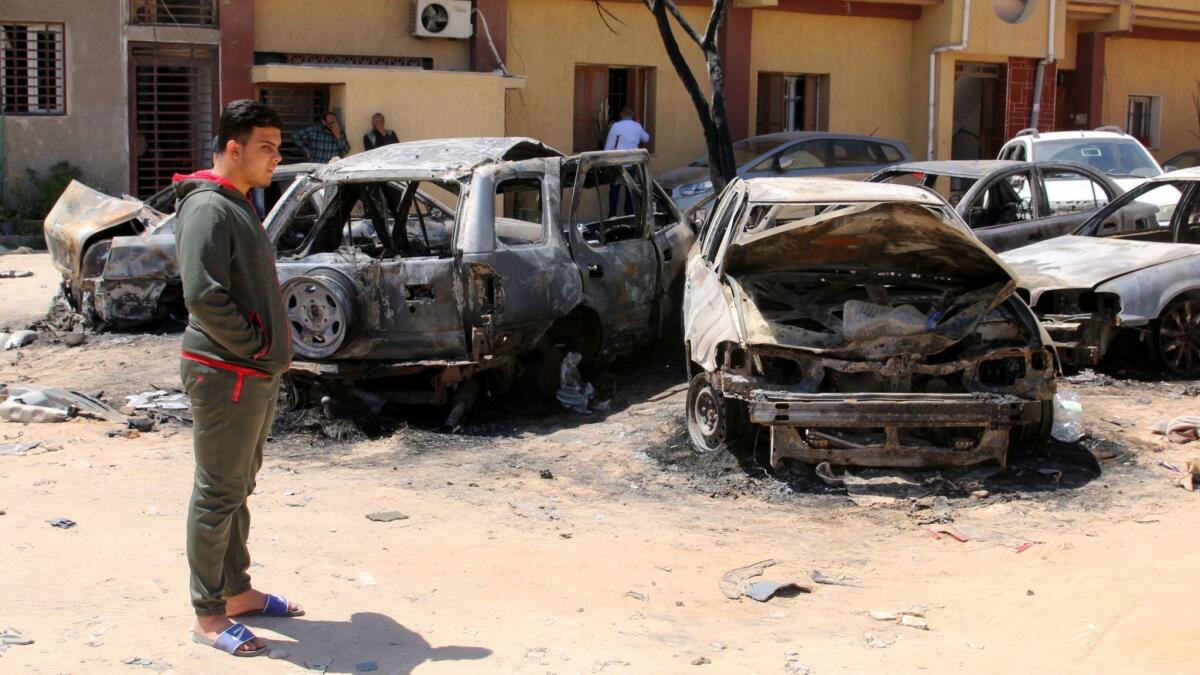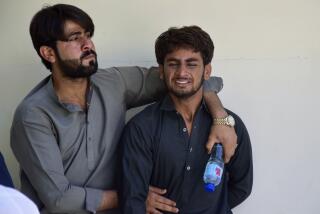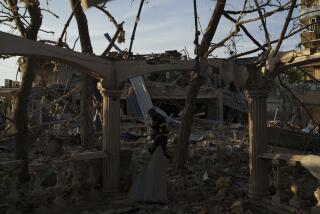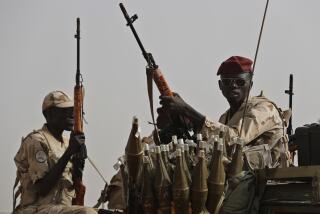Libya shelling kills at least six civilians as rival militias battle for control of Tripoli

At least six civilians were killed in heavy shelling on a residential neighborhood in Libya’s capital, a health official said Wednesday, the latest escalation in fighting between rival militias over control of Tripoli.
The overnight rocket shelling on the high-density residential district of Abu Salim, less than 4½ miles from the city center, prompted condemnation “in the strongest terms” from the United Nations envoy for Libya.
“The use of indiscriminate, explosive weapons in civilian areas constitutes a war crime,” said Ghassan Salame. He did not name the shelling source.
Fighting erupted April 5, pitting the self-styled Libyan National Army, led by commander Khalifa Haftar and aligned with a rival government in the east, against militias affiliated with Tripoli’s U.N.-supported government.
Each side blamed the other for the shelling, which wounded at least 26 people, according to Malek Merset, a spokesman for the Health Ministry in Tripoli.
U.N. spokesman Stephane Dujarric said Wednesday in New York that “in the past 24 hours we’ve also seen the highest single-day increase in displacement, with more than 4,500 people displaced, and that’s according to the International Organization for Migration.”
Dujarric said the total number of people forced from their homes was up to 25,000.
“Civilians trapped in conflict areas are reportedly running low on basic food items as well as fuel, and experiencing prolonged electricity and water cuts,” he said.
Dujarric also said that on Tuesday the U.N. refugee agency and its partners relocated 150 displaced people who were held in the Abu Salim detention center — close to the ongoing clashes — to a U.N. facility in central Tripoli.
More than 150 people have been killed since Haftar launched the military offensive to take Tripoli, according to the United Nations. Haftar aspires to unite Libya under his army.
The clashes have prompted the chief prosecutor of the International Criminal Court to warn that she could investigate and possibly prosecute new offenses.
ICC Prosecutor Fatou Bensouda, who was already investigating crimes in Libya, said in a statement that she was “deeply concerned” about the escalation of violence and called on military commanders to prevent war crimes.
She said Tuesday that she “will not hesitate to expand my investigations and potential prosecutions to cover any new instances of crimes falling within the court’s jurisdiction.”
The battle for Tripoli could ignite civil war on the scale of the 2011 uprising that toppled and killed longtime dictator Moammar Kadafi. That conflict led to Bensouda’s ongoing inquiry after the U.N. Security Council called for an investigation.
Since Kadafi’s ouster, Libya has been governed by rival authorities in the east and in Tripoli, in the west, each backed by various militias and armed groups fighting over resources and territory. Haftar’s forces have been supported by Egypt, the United Arab Emirates, France and Russia.
More to Read
Sign up for Essential California
The most important California stories and recommendations in your inbox every morning.
You may occasionally receive promotional content from the Los Angeles Times.










